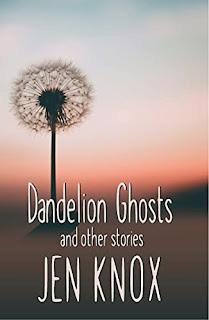This is Wallace, a brief character sketch of the protagonist I've been tussling with over the past year. I've been blocked with this guy, and for quite sometime I've felt his character is falling flat. At the same time, I'm compelled to tell his story.
 In my quest to write fiction at all after five years of memoir-intense study, I sought out advice from how-tos on the process of fiction writing and found a bunch of cliched advice and vague suggestions. So, I decided to think outside the box a little. Whenever I write, I want to write from some emotional core. When I was writing Musical Chairs
In my quest to write fiction at all after five years of memoir-intense study, I sought out advice from how-tos on the process of fiction writing and found a bunch of cliched advice and vague suggestions. So, I decided to think outside the box a little. Whenever I write, I want to write from some emotional core. When I was writing Musical Chairs
Wallace couldn't be less like me. I'm in shape, I'm thirty, a woman, childless, and I have a wonderful relationship with my husband. Nonetheless, I know that I need to really understand and empathize in order to write Wallace's character, so I recently decided to study method acting, a process by which an actor summons her own experiences and past emotional states in order to feed her character. This technique has been utilized by some of the most versatile actors around: Meryl Streep, Matt Damon, Al Pacino... So I thought, why not apply it to writing? Let me just tell you, this has helped a lot!
Try it. If you're working on a piece of fiction, especially a character-driven piece, take a few minutes to read up on method acting. Try to get in your character's head space by evoking images from your own emotional past that might relate in some way to your character's dilemma. It's working to reconcile things between Wallace and me, so I thought I'd share. Here's a good article on the subject, and how to employ it.
TheatrGROUP METHOD ACTING PROCESS HOW-TO http://www.theatrgroup.com/Method/

That's a good idea!
ReplyDeleteHi, Jen. Based on your post title, I thought you were going to talk about the book Getting Into Character: Seven Secrets a Novelist Can Learn From Actors, by Brandilyn Collins, which is about applying the Method to writing characters in a novel. (I haven't read the book yet, but it's on my Amazon wish list.) I know that I commonly draw on my own emotions when writing my characters, even the female ones, because we all have our humanity in common.
ReplyDeleteThe resource that transformed my fictional characters, when I was first learning how to write fiction, and brought my writing up a level, was Holly Lisle's Create a Character Clinic. In it, she advises starting with the character's compelling need. What does your character need? It sounds like he feels his life spinning out of control, and he needs to regain a sense of control over his life. That's a compelling, human need. (Good character sketch, BTW.) And so the things he does, the way he responds to things that happen around him and to him, he will try to meet that need, possibly even by adopting dysfunctional behaviors.
But it sounds like you've already figured all that out. :-)
-TimK
Thanks, Tim. I have a severe disliking for how-to write books. Especially since they usually are written by people who don't have novels out. But, this one sounds interesting. and I checked out Brandilyn Collins. He seems to have the genre thing down, so I'll give it a shot. Thanks for the tip.
ReplyDeleteWell, there's more money in how-to-write-a-novel books than in the novels themselves. :-) That's why I swear by Holly Lisle's stuff, for example. She's one of the only authors whose novels I myself consistently enjoy, and in her how-to-write web pages, books, and courses, she talks about the actual techniques and processes that she actually uses. -TimK
ReplyDelete